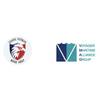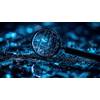Navigation
Navigation, derived from the Latin words "navis" (meaning "ship") and "agere" (meaning "to drive") is the process of accurately determining the position and controlling the movement of a craft or vehicle along a desired course. This is accomplished by finding the navigator's position compared to known locations or patterns.
Early instruments used for determining latitude were the quadrant, (which measured the altitude of the polestar or the noonday sun,) the astrolabe and the sextant. Longitude was originally fixed using chronometers and tables showing yearly positions of celestial bodies. The first mariners to explore the world’s oceans developed standard ways of observing and recording their location, the routes they traveled, wind and water currents, and other useful facts. These records, logs, and journals made it possible find their way home and pass along their observations. Each successful voyage became a part of an expanding collection of reliable maritime information.
Modern navigation systems are part of a tightly coordinated and widely integrated transportation system in which each vessel must be responsible for staying on course, avoiding collisions, minimizing fuel consumption, and keeping on schedule. Modern navigation systems make use of many traditional tools, such as compasses, charts, instruments; but over the past century radio beacons, satellite networks and global positioning systems have been relied upon with increasing frequency to determine a ship’s position.
Ship compasses are usually stabilized by gyroscopes and installed in housing which properly compensates for the vessel’s motion. Charts are another essential navigational tool- position is fixed using charts of known locations in concert with instruments that calculate a vessel’s relative bearing. Dead reckoning is a method which relies on recording the accurate velocity calculated by gyroscopes and computer analysis of the vessel’s acceleration.





